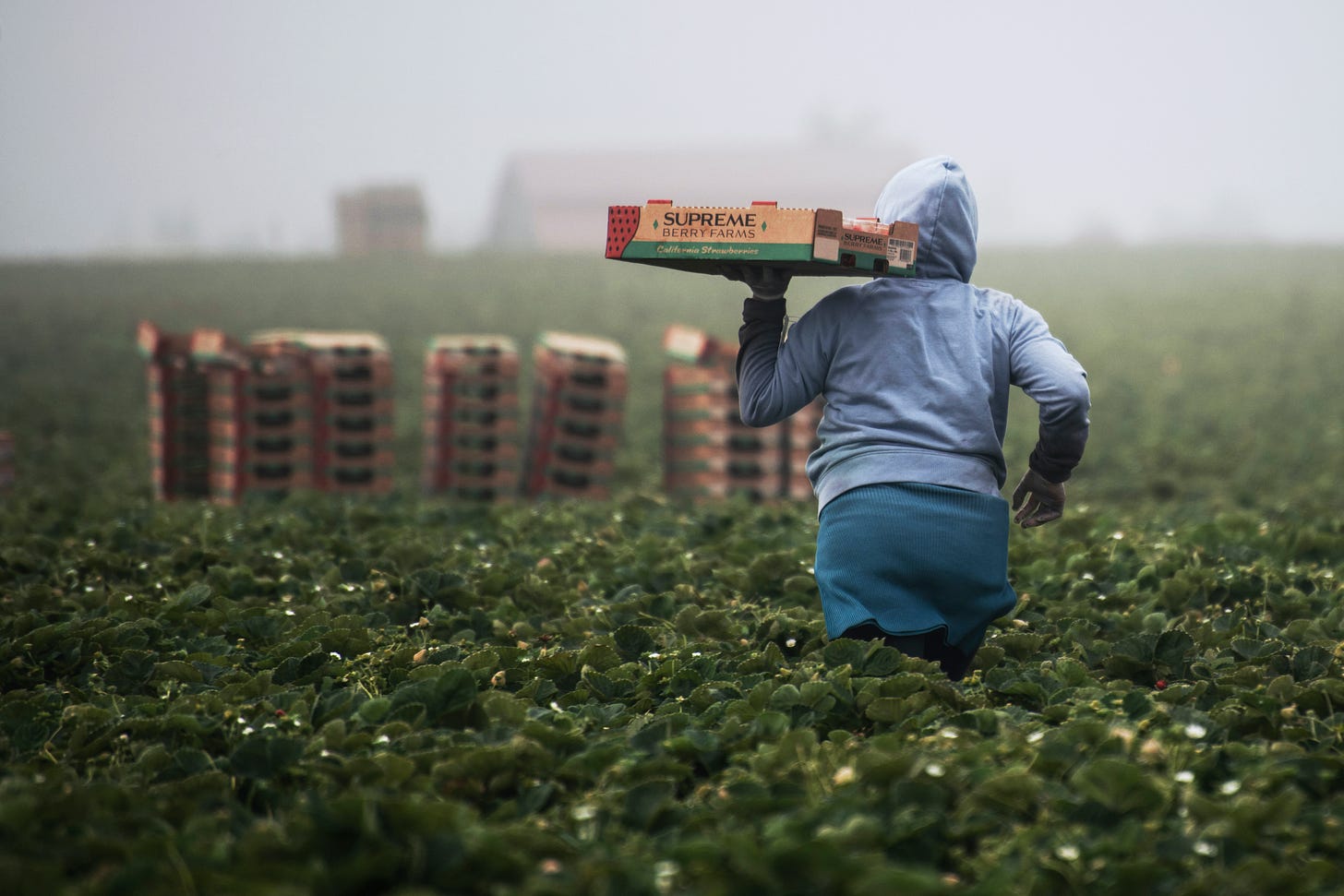The $2 Trillion Threat: How Pushing Out Immigrants Kills the American Economy
Anti-immigrant policies inevitably backfire on businesses and everyday Americans

In college, I had a close friend who was an undocumented immigrant. She'd moved to the U.S. as an international student and, for a bunch of reasons, had to quit college and stay on in New York. As a result, for the time being, she was without papers. To survive, she worked exploitative administrative and customer service jobs that paid her petty wages in cash.
Despite being undocumented, she did something that didn’t make sense to me at the time—she filed her taxes every single year. She was preparing for if and when she had the chance to become a U.S. citizen, her tax history would work in her favor.
Like my friend, millions of undocumented immigrants have quietly contributed to the U.S. economy, trusting the government's assurance that filing taxes was safe. Now, that trust is under threat.
A proposed agreement between the Department of Homeland Security (DHS) and the Internal Revenue Service (IRS) threatens to dismantle decades of trust. The agreement would allow tax data collected by the IRS to be shared with immigration enforcement agencies, a sharp departure from the long-standing policy of confidentiality. For thirty years, the government has reassured immigrants that filing taxes was safe—that their information would remain private and not be used against them in deportation proceedings. If implemented, this new policy would undermine those assurances and put millions of undocumented immigrants at risk.
The stakes are enormous. About half—possibly more—of the roughly 11 million undocumented immigrants in the country have been filing tax returns, believing in the government's promise of confidentiality. My friend was one of them, meticulously documenting her contributions, believing that one day her tax history would offer her a path to citizenship.
But if this trust is shattered, the consequences could ripple far beyond immigrant communities. The New York Times reports that undocumented workers are already afraid of going to work and living their daily lives. The impact is being felt not only in immigrant homes but also in industries that rely heavily on immigrant labor, such as residential construction, agriculture, senior care, and hospitality.
The numbers tell a powerful story:
Immigrants comprise 19% of the U.S. workforce
Over 70% of farmworkers are foreign-born (40% are undocumented)
25% of domestic workers are immigrants
Approx. 30% of physicians and surgeons are immigrants
“Businesses across industries know what comes next when their work force disappears — restaurants, coffee shops and grocery stores struggling to stay open, food prices soaring, and everyday Americans demanding action,” Rebecca Shi, chief executive of the American Business Immigration Coalition said in an interview to The New York Times.
Historically, attempts to push out immigrant workers have led to economic disasters. The Chinese Exclusion Act of 1882 marked one of America’s first large-scale efforts to exclude an immigrant group. Chinese laborers, instrumental in building the transcontinental railroad, were targeted by xenophobia and economic anxiety. When Chinese workers were expelled, industries like agriculture, mining, and railroads—which had come to rely on their labor—suffered significant disruptions. Promises that wages for non-Chinese laborers would improve went unfulfilled, and many regions faced severe labor shortages that hindered economic growth.
During the Great Depression, over 400,000 Mexican Americans—many U.S. citizens—were forcibly deported. Farm productivity in California plummeted, directly slowing economic recovery.
More recently, states like Alabama and Georgia implemented harsh immigration enforcement laws aimed at driving out undocumented workers. Georgia’s 2011 law, HB 87, led to substantial economic losses in agriculture as labor shortages left crops unharvested and rotting in the fields. Attempts to recruit American-born workers to fill the gap proved largely unsuccessful.
These past mistakes remind us of the far-reaching consequences of targeting immigrant communities.
If every immigrant disappeared tomorrow, the economic consequences would be catastrophic:
The U.S. GDP would shrink by an estimated $2 trillion annually.
Food prices would skyrocket even more than they already have.
Entire industries like hospitality, construction, and food service would collapse.
From enslaved Africans to Chinese railroad workers to today’s farmworkers and healthcare aides, America’s wealth has been built on the labor of marginalized communities.
So the next time someone claims immigrants are “taking jobs,” ask them a simple question: If all immigrants left tomorrow, would you be willing to step into their shoes?
POLICY WATCH
Farm Workforce Modernization Act: Supporting Agricultural Workers
The Farm Workforce Modernization Act is trying to make life better for the hardworking farmworkers who are often invisible but absolutely essential to our food system.
This bipartisan bill wants to help undocumented farmworkers come out of the shadows. It would create a special worker status that gives these agricultural workers a chance to work legally and potentially become citizens. Imagine working every day, feeding the entire country, but living with constant uncertainty about your own future—that's the reality for many farmworkers right now.
The act would make the agricultural visa system more flexible, especially for industries like dairy farming that need workers year-round. Plus, it helps address the serious labor shortages many farms are experiencing.
Want to help? It's actually pretty simple. You can:
Send a message to Congress
Support the United Farm Workers

